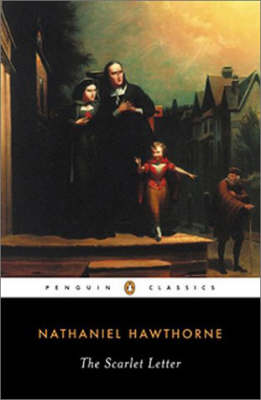
celinenyx
Written on Oct 17, 2015

Bookhype may earn a small commission from qualifying purchases. Full disclosure.
A powerful study of bigotry, persecution, obsession and hypocrisy in early American society, the "Penguin Classics" edition of Nathaniel Hawthorne's. "The Scarlet Letter" contains an introduction by Nina Baym and notes by Thomas E. Connolly. Set in the harsh Puritan community of seventeenth-century Boston, "The Scarlet Letter" is the story of Hester Prynne, a married woman who has an affair and gives birth to an illegitimate daughter. Condemned by society for her adultery, she is forced to wear a scarlet A for 'Adulteress' on her dress for the rest of her life. Publicly disgraced and ostracised, Hester refuses to name her lover - drawing on her strength and certainty of spirit to emerge as the first true heroine of American fiction. Hester bears her shame with dignity, and attitudes towards her soften as time passes; Arthur Dimmesdale, her lover, is steadily consumed by his guilt, having disavowed his passion for Hester and any love for their daughter Pearl; while her husband is destroyed by his determination to discover the lover's identity.
In her introduction Nina Baym explores how "The Scarlet Letter" was not written as realistic, historical fiction but as a 'romance' a creation of the imagination that discloses the truth of the human heart. Nathaniel Hawthorne (1804-64) was born in Salem, Massachusetts. In 1825 he graduated from Bowdoin College, Brunswick, Maine, and returned to Salem determined to become a writer. He joined Brook Farm, a utopian experiment in communal living, before marrying in 1842. His writing had already secured some success with his "Twice-Told Tales", but it was the publication of "The Scarlet Letter" in 1850 that brought him immediate recognition, followed a year later by "The House of the Seven Gables". If you enjoyed "The Scarlet Letter", you might like Henry James's "The Portrait of A Lady", also available in "Penguin Classics".







